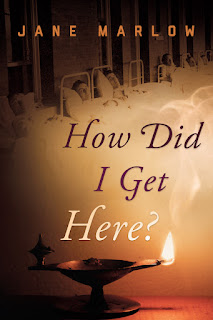More Q&A From Carrie Morgridge Author
1. What was your greatest challenge in writing this book?
·
I first wrote our bike across the
country as a blog. The hardest challenge
was reading my scratch from my phone – which we turned into a book. Both John and I had to go back and just look
at the photos and re-write the entire trip.
The crazy thing is that our memory is sparked by each day of photos and
we both could remember crazy details each and every day (46 total) of that
summer.
2. On a Friday night, what are you most likely to be doing?
·
I love a good glass of red wine. I
love to be outside for sunset with John, Nina our dog and many times friends. I
work seven days a week, so sometimes I am not sure Friday night from Sunday
night.
3. What do you like to do when you are not writing?
·
I love to work out. I play tennis, go to the gym, snow ski, SUP,
swim, snorkel, and at the very end of the day – get a massage.
4. Who are some of your favorite authors?
·
Adam Grant, Thomas Friedman,
Walter Isaacson, Jim Collins, Malcom Gladwell, Sheryl Sandburg, E.L. James,
J.K. Rowling, Peter Reynolds, Bill Peet
5. Do you have a bucket list? What are some of the things on it?
·
Be a great grandma – I have 4
grand puppies and 2 grand kittens
·
Inspire women to be whatever they
want to be.
·
To be a great wife
·
To visit Mully and President
Kugama in Africa
·
To laugh each day
·
To love more each day than the
past day
6. Have you won any awards or honors (not just for writing)?
·
Several -
·
Arthur B Lorber Award for
Distinguished Service from National Jewish Health – where they never say never
and our foundation supports a school for medically frail children, and
residences for up and coming doctors for all of America
·
Frances Wisebart Jacobs award – United Way Denver Frances Frances
started United Way Denver Colorado
·
Urban Legend Award – for our work
with homeless teens and young adults
·
Hope Award – from Tony LaRussa for
our work in rescue animals
·
Josef Korbel Humanitarian Award –
from the University of Denver for our work in our community and around the US
7. What person(s) has/have helped you the most in your career?
·
My husband, John is my rock. He put me through college, believed in me as
my parents did, and 150% supports me every day
·
My in-laws – John and Tashia
Morgridge – they are the BEST in-laws ever.
·
My parents – they still think I am
amazing and I love them dearly.
·
John Farnam – my consultant, best
friend, and colleague of 6 plus years
·
Kellie Lauth – The CEO of a non profit
that we spun off from Morgridge Family Foundation – but she is the inventor,
the creator and just uber smart. Someone
I look up to.
·
Dr. Bridget Coughlin – CEO Shedd
Aquarium – Has taught me so much about business, science, evolution. Smartest woman I know, and one of the
kindest.
·
George Sparks – CEO of Denver Museum
·
Dr. Michael Salem – CEO of
National Jewish Health. So smart, so
driven and willing to talk with me as an intellectual about all subjects.
·
Arthur Brooks – CEO of American
Enterprise Institute. Arthur can share
his intellectual thoughts to the point where you can understand what he his
saying, yet his words seem to be my words.
He pushes me to be better.
·
Jo Kwong – Director of Economic
Development at The Philanthropy Roundtable.
Jo never stops. Her passion to
make America
·
Robert Wolgemuth – He was my agent
for my first book, Every Gift Matters – How Your Passion can Change the World.
He and his late wife Bobbie, brought me closer to God, and each day since
magical things have happened in my life that I would have never dreamt
possible.
8. What’s the best writing advice you have ever received?
·
Edits are great! Go with it.
9. What was your favorite book as a child?
·
Dr. Seuss – Green Eggs and Ham
10. What is the one book no writer should be without?
·
Their first book that makes them
fall in love with reading. This is very individual and each of us can remember
our first book, that we just couldn’t put down and pulled an all nighter to
finish. This is the book to hold on to forever.
11. How do your spouse/significant other/friends/family feel about your
writing career?
 |
| Carrie and John |
·
If you knew my background deeper
you would understand that my family is pleasantly surprised. However, I am a hard worker, so my husband
was not surprised when I asked him if I could write my third book, even though
I am just finishing book 2. I am getting
better, and it is coming much easier, and as Malcom Gladwell says, when you
have 10,000 hours you too, will become an expert. No writer is ever an expert, but we do get
into our groove.
12. If your book was turned into a movie, who would you like to play the
main characters?
·
Reese Witherspoon
·
Patrick Dempsey













